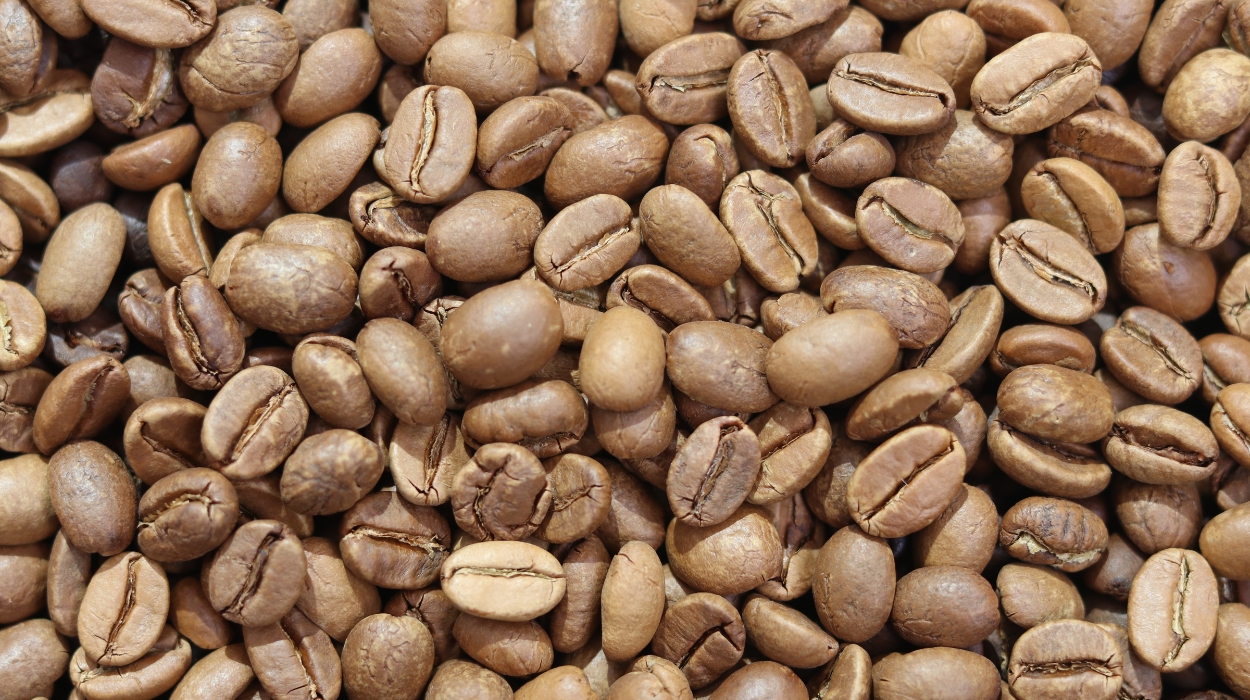 Expert's opinion
Expert's opinion
Expert's opinion
The article is a subjective view on this topic written by writers specializing in medical writing.
It may reflect on a personal journey surrounding struggles with an illness or medical condition, involve product comparisons, diet considerations, or other health-related opinions.
Although the view is entirely that of the writer, it is based on academic experiences and scientific research they have conducted; it is fact-checked by a team of degreed medical experts, and validated by sources attached to the article.
The numbers in parenthesis (1,2,3) will take you to clickable links to related scientific papers.
Does Coffee Help You Lose Weight? Let’s Find Out 2024

If you’re trying to lose weight and burn body fat and have tried all the diets out there, you may also be wondering, “Does drinking coffee help you lose weight?” Perhaps you’ve heard coffee for weight loss, but you’re unsure if it’s true.
The relationship between coffee and burning fat cells or curbing sugar cravings is shrouded in mystery and conflicting opinions. And this article aims to unravel whether coffee can aid in weight loss.
We will answer questions like, “How does coffee help you lose weight?” by examining the scientific data surrounding coffee and its potential effects on metabolism, appetite, and overall health.
Does Coffee Help Lose Weight?
Coffee may aid in weight loss due to its caffeine content, which can boost metabolism and suppress appetite. However, you should not rely on coffee as the sole weight loss solution and always consume it in moderation. A balanced diet and regular exercise, while on a coffee diet, may be the most effective methods for losing weight and improving overall health.
How Does Coffee Affect Your Weight?
Scientists have shown that caffeine intake helps you lose weight: so how does black coffee help you lose weight?
It may help due to its effect on metabolism and appetite.
Research supports that the caffeine in coffee helps boost fat metabolism and increase fat burning,[1] aiding in weight loss. Interestingly, this effect for afternoon consumption is twice what it is in the morning. Caffeine stimulates your central nervous system and increases adrenaline production,[2] possibly increasing your metabolic rate and fat burning.
Adrenaline boosts metabolism by activating the sympathetic nervous system, which triggers the release of stored energy[3] from fat cells and glycogen in the liver. Your body then uses this energy to fuel the body’s response to the stress your body undergoes during weight loss.
Drinking caffeinated coffee may also suppress appetite and reduce food intake, sugar cravings, and overall caloric intake. Caffeine’s ability to boost adrenaline also helps reduce your appetite[4] and increase feelings of fullness.
Additionally, coffee may increase levels of the hormone peptide YY,[5] produced in the gut, which signals the brain that the body is satisfied. Alternatively, caffeine has been shown to have no effect[6] on the hormone peptide YY.
In fact, decaffeinated coffee most raised the hormone, although it showed a circadian rise[7] in the evening, which might be related to caffeine’s stronger satiety later in the day.
What Type Of Coffee Is Best For Weight Loss?
Black And Light Roast Blends

Black and light roast coffee and weight loss-curated coffee blends are the three best coffees for your weight loss journey.
Black coffee is a low-calorie beverage that can help reduce calorie intake and potentially promote weight loss through caffeine’s metabolism-boosting and appetite-suppressing effects.
Lightly roasted coffee beans contain a higher concentration of chlorogenic acid[8] than darker roasts. Chlorogenic acid may inhibit the absorption of carbohydrates in your body, reducing blood sugar levels[9] and potentially helping you lose weight faster. Lightly roasted coffee also has a higher caffeine content than darker roasts, increasing your body’s metabolic rate and helping you lose fat.
Weight Loss-Curated Blends
One last surprising type of coffee that might help answer the question, does coffee make you lose weight is taking weight loss-curated coffee blends. These coffee blends may be marketed as weight loss coffee due to ingredients like green tea extract,[10] Garcinia cambogia, lemon, or others that science proves to support weight loss. Some of these ingredients, paired with caffeine, work together.
So, for someone questioning whether lemon and coffee help you lose weight, the answer is that they do to some extent.
Lemon is a low-calorie fruit high in vitamin C and antioxidants,[11] so drinking half and half lemon water and black coffee can help keep you hydrated and aid in digestion. Some believe lemon water can help with weight loss by increasing metabolism and acting as an appetite suppressant. However, there are no recent scientific studies to support these claims.
Verdict On Coffee Is Still Not In
The downside of these weight loss coffee blends is that their research is still in its infancy, if any. Consider the counterintuitive information on decaffeinated coffee above. Thus, it’s essential to be cautious of these claims and read labels carefully to ensure the ingredients are safe and effective. Most importantly, do your research!
The black, lightly roasted, and caffeinated fat-burning coffee types are good alternatives to high-calorie coffee drinks with the same or higher caffeine kick.
Decaffeinated coffee does not directly help you lose weight, but it can be part of an overall weight loss plan because it also has a low caloric count and may raise satiety[6] by increasing peptide YY.
How To Drink Coffee To Lose Weight?
When drinking coffee to aid in weight loss, it’s essential to consume it in a way that supports your weight loss journey. First, avoid high-calorie caffeinated beverages and opt for black coffee, lightly roasted coffee, or caffeinated fat-burning supplements with minimal additives. Avoid adding sugar such as sugary sprinkles, candy toppings, caramel, and other additives that add to the calorie intake. And consider moving your caffeine routine to the afternoon.
Other Health Benefits Of Coffee

There are many potential health benefits. Here are some of the most commonly cited benefits:
- Increased alertness and concentration: Caffeine can help you feel more alert[12] and focused.
- Reduced risk of certain diseases: Regular coffee consumption may reduce the risk of developing type 2 diabetes,[13] liver disease,[14] Parkinson’s disease,[15] and some types of cancer.[16]
- Lower depression: Some studies have suggested that people who drink coffee regularly may have a lower risk of depression.[17]
- Improved physical performance: Caffeine can also improve physical performance,[18] making it a popular choice among athletes.
It’s worth noting that while coffee can have many health benefits, it’s crucial to consume it in moderation and be aware of any individual health risks.
Can Coffee Make You Gain Weight?
Now that we have the answer to Does caffeine help you lose weight, is there a possibility of the opposite happening? In some instances, yes, coffee might lead to weight gain.
Coffee drinking may counteract your weight loss progress if you do it wrong. One instance is when you drink high-calorie coffee drinks, such as those with added sugar, toppings, and creams, which negate potential coffee for weight loss benefits.
Also, if you consume coffee while on an unhealthy diet with fat-filled foods with zero exercise, you may gain weight. The coffee consumed might still offer you its other health benefits.
Side Effects & Safety
A coffee diet can help with weight loss due to its appetite-suppressing effects, but you should consume it in moderation. About four to five cups of coffee per day, about 400 milligrams of coffee,[19] are considered safe according to the FDA and may support weight loss combined with a balanced diet and exercise.
Some people may experience digestive issues such as acid reflux or stomach upset when drinking coffee, particularly on an empty stomach. Coffee is acidic, so drinking it on an empty stomach exacerbates your stomach’s acidity.
The minor negative effects of mild caffeine sensitivity are sensations of jitteriness and anxiety that are usually harmless and fade away as the caffeine wears off or as you become accustomed to it daily.
But on the extreme, excessive caffeine consumption may lead to health risks such as increased blood pressure, poor sleep, dehydration, and disrupted appetite regulation. Finally, it’s worth noting that not all bodies react to coffee similarly.
Some individuals may have a genetic predisposition that makes them more sensitive to the effects of caffeine, which may result in more pronounced side effects. Also, genetic variations in some people will cause caffeine to have the opposite effect on physical performance.
Conclusion
While coffee consumption may have some weight loss benefits, it’s crucial to approach it from a balanced and mindful aspect. Black, lightly brewed, or weight-loss blended coffee intake in moderation could support your weight management goals. But caffeine consumed excessively can increase blood pressure and other health risks.
The idea that coffee can be a magic bullet for weight loss goals is a myth, and relying on it as the sole method for weight loss can be ineffective and even harmful.
The benefits of a morning cup of coffee or skipping breakfast to enhance weight loss efforts are debatable. They may depend on weight, height, genetics, resting metabolic rate, lifestyle habits, and circadian rhythm.
As for some pressing questions like, does drinking black coffee help you lose weight? And does drinking coffee on an empty stomach help you lose weight? The evidence is that it does but may cause stomach disturbances when you drink on an empty belly. So, don’t skip breakfast when having your coffee beverages.
Ultimately, the key to successfully burning fat and maintaining a sustainable weight is a balanced approach that includes regular exercise, a healthy lifestyle and diet, and mindful consumption of coffee and other caffeinated drinks.
+ 19 sources
Health Canal avoids using tertiary references. We have strict sourcing guidelines and rely on peer-reviewed studies, academic researches from medical associations and institutions. To ensure the accuracy of articles in Health Canal, you can read more about the editorial process here
- Ramírez-Maldonado, M., Jurado-Fasoli, L., Juan Del Coso, Ruiz, J.R. and Amaro-Gahete, F.J. (2021). Caffeine increases maximal fat oxidation during a graded exercise test: is there a diurnal variation? Journal of the International Society of Sports Nutrition, [online] 18(1). doi:https://doi.org/10.1186/s12970-020-00400-6.
- Fiani, B., Zhu, L., Musch, B., Briceno, S., Andel, R., Sadeq, N.A. and Ansari, A.Z. (2021). The Neurophysiology of Caffeine as a Central Nervous System Stimulant and the Resultant Effects on Cognitive Function. Cureus. [online] doi:https://doi.org/10.7759/cureus.15032.
- Brown.edu. (2022). What are the effects of caffeine? | Health Promotion | Brown University. [online] Available at: https://www.brown.edu/campus-life/health/services/promotion/content/what-are-effects-caffeine
- Anthony J.M. Verberne, Korim, W.S., Azadeh Sabetghadam and Llewellyn-Smith, I.J. (2016). Adrenaline: insights into its metabolic roles in hypoglycaemia and diabetes. British Journal of Pharmacology, [online] 173(9), pp.1425–1437. doi:https://doi.org/10.1111/bph.13458.
- Ans, A.H., Anjum, I., Vaibhav Satija, Awaisha Inayat, Asghar, Z., Akram, I. and Shrestha, B. (2018). Neurohormonal Regulation of Appetite and its Relationship with Stress: A Mini Literature Review. Cureus. [online] doi:https://doi.org/10.7759/cureus.3032.
- Annual Reviews. (2014). The Role of Gut Hormone Peptide YY in Energy and Glucose Homeostasis: Twelve Years On. [online] Available at: https://www.annualreviews.org/doi/10.1146/annurev-physiol-021113-170404
- Journal of the American College of Nutrition. (2013). Coffee, Hunger, and Peptide YY. [online] Available at: https://www.tandfonline.com/doi/abs/10.1080/07315724.2012.10720023
- Rynders, C.A., Morton, S.U., Bessesen, D.H., Wright, K.P. and Broussard, J.L. (2020). Circadian Rhythm of Substrate Oxidation and Hormonal Regulators of Energy Balance. Obesity, [online] 28(S1). doi:https://doi.org/10.1002/oby.22816.
- Watanabe, T., Kobayashi, S., Yamaguchi, T., Masanobu Hibi, Fukuhara, I. and Osaki, N. (2019). Coffee Abundant in Chlorogenic Acids Reduces Abdominal Fat in Overweight Adults: A Randomized, Double-Blind, Controlled Trial. Nutrients, [online] 11(7), pp.1617–1617. doi:https://doi.org/10.3390/nu11071617.
- Meng, S.-X., Cao, J., Feng, Q., Peng, J. and Hu, Y.-Y. (2013). Roles of Chlorogenic Acid on Regulating Glucose and Lipids Metabolism: A Review. Evidence-based Complementary and Alternative Medicine, [online] 2013, pp.1–11. doi:https://doi.org/10.1155/2013/801457.
- Chen, I-Ju., Liu, C.-Y., Chiu, J.-P. and Hsu, C.Y. (2016). Therapeutic effect of high-dose green tea extract on weight reduction: A randomized, double-blind, placebo-controlled clinical trial. Clinical Nutrition, [online] 35(3), pp.592–599. doi:https://doi.org/10.1016/j.clnu.2015.05.003.
- Yong Beom Park, Kim, I.-D., Sanjeev Kumar Dhungana, Eun Cheol Park, Jae Yong Park, Jeong Hun Kim and Shin, D.-H. (2021). Quality Characteristics and Antioxidant Potential of Lemon (Citrus limon Burm. f.) Seed Oil Extracted by Different Methods. Frontiers in Nutrition, [online] 8. doi:https://doi.org/10.3389/fnut.2021.644406.
- Pasman, W., Boessen, R., Donner, Y., Nard and Boorsma, A. (2017). Effect of Caffeine on Attention and Alertness Measured in a Home-Setting, Using Web-Based Cognition Tests. JMIR Research Protocols, [online] 6(9), pp.e169–e169. doi:https://doi.org/10.2196/resprot.6727.
- Kolb, H., Martin, S. and Kempf, K. (2021). Coffee and Lower Risk of Type 2 Diabetes: Arguments for a Causal Relationship. Nutrients, [online] 13(4), pp.1144–1144. doi:https://doi.org/10.3390/nu13041144.
- Heath, R.D., Brahmbhatt, M., Asli Ceren Tahan, Ibdah, J.A. and Tahan, V. (2017). Coffee: The magical bean for liver diseases. World Journal of Hepatology, [online] 9(15), pp.689–689. doi:https://doi.org/10.4254/wjh.v9.i15.689.
- Ren, X. and Chen, J.-F. (2020). Caffeine and Parkinson’s Disease: Multiple Benefits and Emerging Mechanisms. Frontiers in Neuroscience, [online] 14. doi:https://doi.org/10.3389/fnins.2020.602697.
- Ernest and Duccio Volterrani (2021). Coffee Consumption and Cancer Risk: An Assessment of the Health Implications Based on Recent Knowledge. Medical Principles and Practice, [online] 30(5), pp.401–411. doi:https://doi.org/10.1159/000516067.
- Wang, L., Shen, X., Wu, Y. and Zhang, D. (2016). Coffee and caffeine consumption and depression: A meta-analysis of observational studies. Australian and New Zealand Journal of Psychiatry, [online] 50(3), pp.228–242. doi:https://doi.org/10.1177/0004867415603131.
- Martins, G., Paulo, J., Ferreira, L., Souza-Junior, T.P. and Antonio Herbert Lancha (2020). Caffeine and Exercise Performance: Possible Directions for Definitive Findings. Frontiers in sports and active living, [online] 2. doi:https://doi.org/10.3389/fspor.2020.574854.
- Office (2021). Spilling the Beans: How Much Caffeine is Too Much? [online] U.S. Food and Drug Administration. Available at: https://www.fda.gov/consumers/consumer-updates/spilling-beans-how-much-caffeine-too-much.



